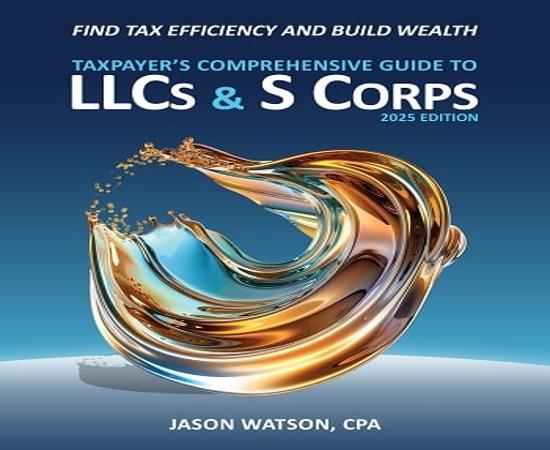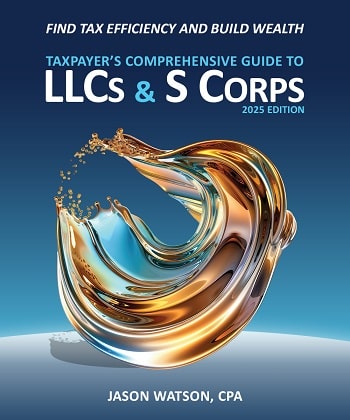Unlocking the Secrets: A Taxpayer’s Comprehensive Guide to LLCs and S Corps
Welcome to the ultimate resource for navigating the complex world of LLCs and S Corps – the taxpayer’s comprehensive guide. Authored by Jason Watson, this guide is a treasure trove of information for individuals and businesses looking to optimize their tax structure and financial strategies. In this article, we will delve into the benefits of LLCs and S Corps, address common FAQs, and provide you with a detailed overview of what to expect from this comprehensive guide.
The Benefits of LLCs and S Corps
LLCs and S Corps are popular choices for business entities due to their flexible structure and tax advantages. One of the key benefits of forming an LLC is the limited liability protection it offers to its members. This means that your personal assets are shielded from business liabilities, providing you with peace of mind.
On the other hand, S Corps are known for their pass-through taxation, which allows business profits and losses to be reported on the individual tax returns of the shareholders. This can result in potential tax savings compared to traditional corporate structures.
A Detailed Explanation
When it comes to choosing between an LLC and an S Corp, it’s essential to consider factors such as the number of owners, desired tax treatment, and long-term business goals. LLCs offer more flexibility in terms of management and ownership structure, making them an attractive option for small businesses and startups.
On the other hand, S Corps are subject to more stringent IRS regulations regarding ownership, which can limit the number and type of shareholders. However, the potential tax benefits of an S Corp can outweigh these restrictions for many business owners.
Frequently Asked Questions
- Can I convert my existing business to an LLC or S Corp?
- What are the filing requirements for an LLC or S Corp?
- Are there any limitations on who can form an S Corp?
- How do I determine which entity is right for my business?
- Does the taxpayer’s comprehensive guide provide step-by-step instructions for forming an LLC or S Corp?
Yes, it is possible to convert your business to an LLC or S Corp by following the necessary legal procedures and requirements. Consulting with a tax professional or attorney is recommended to ensure a smooth transition.
LLCs and S Corps are required to file annual reports and pay any applicable state fees to maintain their good standing. Additionally, S Corps must file Form 1120S with the IRS to report their income and losses.
S Corps are restricted in terms of ownership, with limitations on the number of shareholders and their eligibility. Certain entities such as C Corporations and non-resident aliens are not permitted to own shares in an S Corp.
The decision to form an LLC or an S Corp depends on various factors, including your business structure, tax goals, and future expansion plans. Consulting with a tax advisor can help you evaluate your options and make an informed decision.
Yes, the taxpayer’s comprehensive guide by Jason Watson offers detailed guidance on the process of forming and maintaining an LLC or S Corp. From choosing a business name to filing the necessary paperwork, this guide covers all the essential steps.
Conclusion
In conclusion, the Taxpayer’s Comprehensive Guide to LLCs and S Corps is a valuable resource for individuals and businesses looking to maximize their tax savings and protect their assets. By understanding the benefits of LLCs and S Corps, addressing common FAQs, and seeking expert guidance, you can make informed decisions that will benefit your financial future. Visit the official website to order your copy of this essential guide today and take control of your tax strategy.


